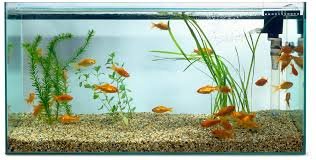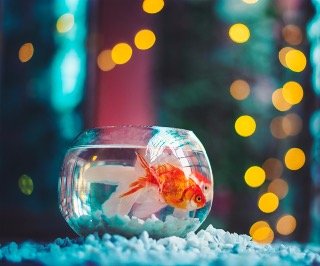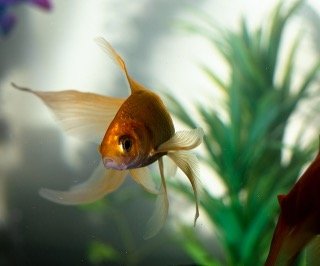
Introduction
The sudden death of a pet goldfish leaves everyone wondering how it happened, why it happened, and what they could have done to prevent it. There are many reasons an apparently healthy goldfish may pass away, but you may never know for sure why your goldfish died abruptly. All of those causes can be divided into three categories: illness, injury, and environment. We’re going to delve into some of the most typical causes in each category and what you can do to rectify them in the future to help you better understand why your goldfish may have died.
- Being assaulted
If this is the case, your fish is likely to exhibit some apparent symptoms, such as bleeding or ripped fins. Bullying and violence frequently occur on a regular basis before a fish dies, although an incident could still happen that starts an attack. Not simply other goldfish pose a threat to your goldfish. An attack that leaves a fish dead might result from either indiscriminate hostility by unsuitable tank mates or competition over resources or territorial claims. Make sure you keep any aggressive tank dwellers apart from the other inhabitants in the tank to avoid this. Additionally, make sure your goldfish are exclusively kept in tanks with suitable tank mates.
You may also like to read Why Don’t Goldfish Live Longer?
2. Breeding Practices
If you’ve ever observed a goldfish in breeding behavior, you are aware that it can be physically and emotionally taxing on the fish, particularly the female. Goldfish males will pursue a female ferociously until she lays her eggs. Scale loss and fin injuries are among the problems that might result from this, which can carry on for days or even weeks. Once more, while you might get symptoms in this scenario, it’s not a given. Sometimes the stress from the behavior can kill a fish, and if it doesn’t, it can weaken your fish’s immune system and make them more susceptible to harmful illnesses.
3. Parasites on the inside
You may frequently notice external parasites like ich and flukes with the naked eye. Internal parasites, on the other hand, are far more difficult to detect and occasionally don’t even show signs until your goldfish is really ill. Because parasites impair the immune system, various infections are made possible. Additionally, they deplete the body’s energy reserves, and some parasites may even harm internal organs. Internal parasites can occasionally have nonspecific and minor symptoms, such as fin clamping and lethargy, making it challenging to detect and cure them. Your best defense against parasites is to prevent them from developing, and the simplest way to do this is to quarantine new fish and treat them prophylactically before introducing them to the main tank with your existing fish.
4. Dropsy
Contrary to popular opinion, dropsy is not a disease in and of itself but rather a symptom. Internal ailments that result in bodily fluid accumulating in the fish’s abdomen are the cause of dropsy. Fish with dropsy develop the distinctive “pinecone” appearance as a result of their scales turning outward and swollen bellies. Fish that show dropsy symptoms are already quite sick, and once dropsy has taken hold, the fatality rate is very high. Some fish may have mild belly enlargement and a pinecone-like appearance that is simple to overlook. Antibacterial or broad-spectrum antibiotics are frequently used to treat dropsy. With the best likelihood of success, the underlying ailment can be treated without first identifying the organism that is responsible.
5. Poisoning by ammonia
Ammonia is a waste product that is produced by the trash your goldfish excretes as well as by the decomposition of organic things, such as plants and animals. Beneficial bacteria normally consume ammonia, which is then eliminated from your tank by the bacteria. Poor filtration and a lack of helpful microorganisms are the two main reasons why ammonia builds up in tanks. In an aquarium, goldfish produce a significant amount of bioload, so you should make sure your filtration system is powerful enough to handle all of their waste, particularly if your tank is overstocked.
When putting up a new tank, a serious mistake that many people do is to skip the tank cycle, which colonizes the helpful bacteria. Without these microorganisms, ammonia quickly starts to accumulate in the tank.
Conclusion
If you’ve ever lost a goldfish unexpectedly, it might be upsetting and frustrating. It can be challenging to figure out what happened, particularly if there are other creatures in the tank that seem to be doing great. Remember that your goldfish might be suffering from a condition for which you are unaware and that, eventually, they may pass away from problems brought on by old age. It might simply be age if your 10-year-old goldfish passes away abruptly, but it’s always a good idea to check your water parameters to make sure your water quality is high and your tank is still cycled.





